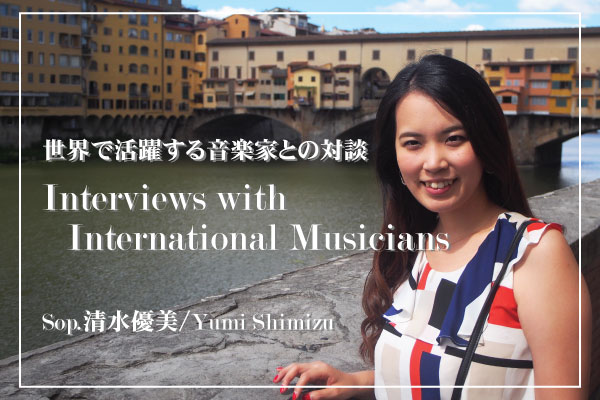
A conversation with Maestro Massimiliano Caldi, Principal Conductor of the Subcarpathian Philarmonic “A. Malawski”, winner of the first absolute prize at the Fitelberg International Conducting competition. Born in Milan in 1967, he is one of Italy’s leading conductors of his generation.
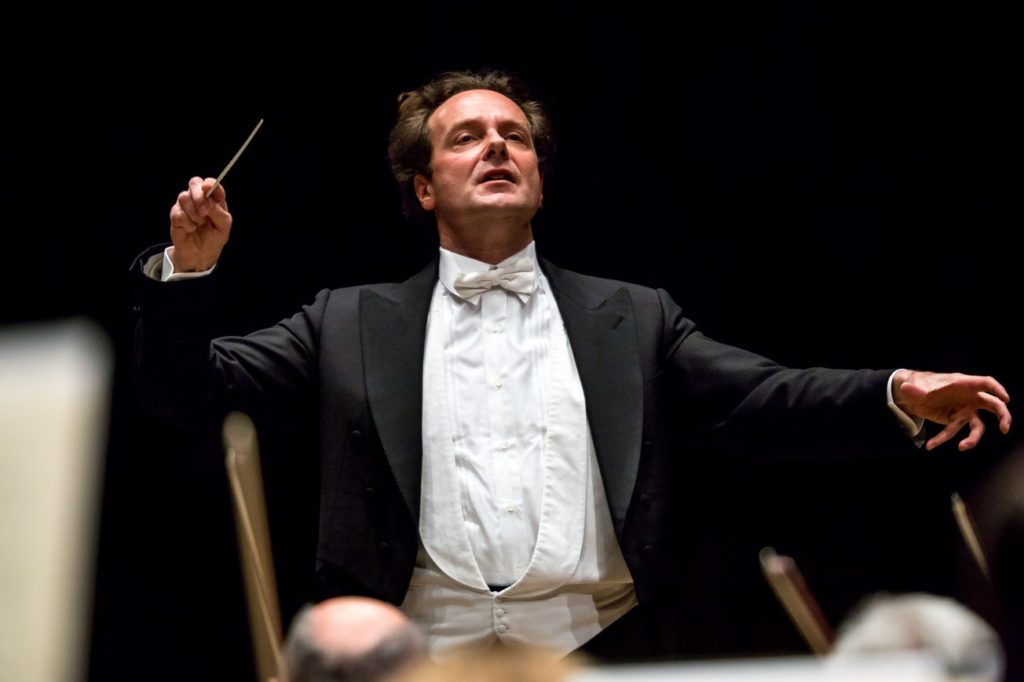
(Łódź, “A.Rubinstein” Philarmonic Hall, 2017© Dariusz Kulesza)
We join the Maestro, albeit virtually, in a Skype conversation on November 30th, 2020. We find him in his hotel room in half-deserted and cold Krakow. He is preparing a concert with the Krakow Philarmonic Orchestra to be live-streamed on the occasion of the 20th anniversary of his debut in the famous Polish city. In the first part of our long and pleasant conversation with him(http://asa-kura.com/blog/interviews-with-international-musicians-vol1-en/), we reviewed his studies and his remarkable international career. We will now learn more about the difference in music culture between Poland and Italy and also how he experienced lockdowns during the pandemic, with the many negative repercussions against live music across Europe. He will also provide some valuable suggestions to music students, so let’s resume our conversation!
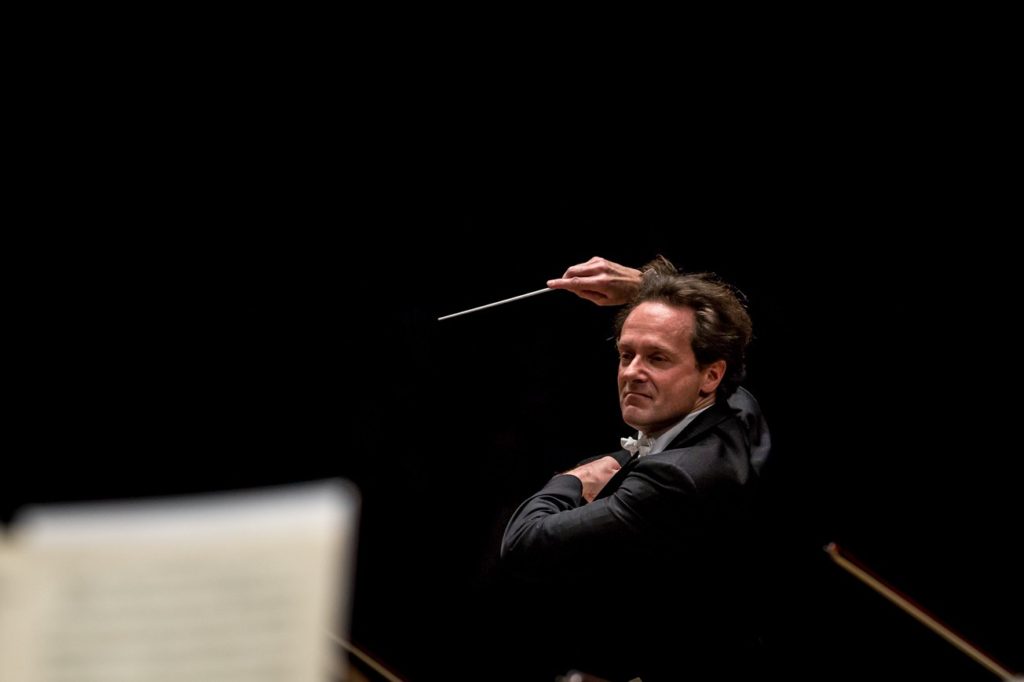
(Łódź, “A.Rubinstein” Philarmonic Hall, 2017© Dariusz Kulesza)
So, Maestro, let’s go back to your career in Poland and the relationship with your home country. Do you still feel a difference in the level of culture between Italy, your home country, and Poland, where you do most of your work? Unfortunately, Poland doesn’t always come up first in the people’s mind when they think about classical music.
That’s exactly what I was saying yesterday to a writer friend of mine, who told me she knew nothing about Poland’s sparkling cultural life. The country’s very discreet, but their economy has been growing for twenty years…
And you also learned the language, right?
I did, yes, because after that concert in 1999 I started to come here regularly, from Warsaw to Katowice and right there they asked me if I wanted to become the artistic director of the Slesian chamber orchestra of Katowice. I started to learn Polish in 2005 and already in 2006 I was able to mutter a few words.
It’s known to be a very difficult language!
I can speak Polish and understand it in conversation, but when I switch on television I feel I can’t understand a word. But if I know the topic, I can speak it well. I could have done this interview in Polish!
Always the musician’s ear…
Indeed, but I promised to my orchestra that I would have spoken Polish to them and so I did.
Let’s go back to the difference about the music world between Italy and Poland. What can you tell me?
The most striking difference is mostly in the repertoires that are chosen. In Italy, for example, opera is much performed and therefore there are plenty of theatres in Italy. Here, it’s different, there are plenty of concert halls. Opera theatres are not so many in Poland, but there is a great knowledge about chamber music.
If I send to Italy a picture like the one I took today of Krakow’s Philharmonic, everyone says “What a beautiful theatre!” And I have to explain that, actually, it’s a concert hall. It’s not the same, like a saloon car is not an estate!
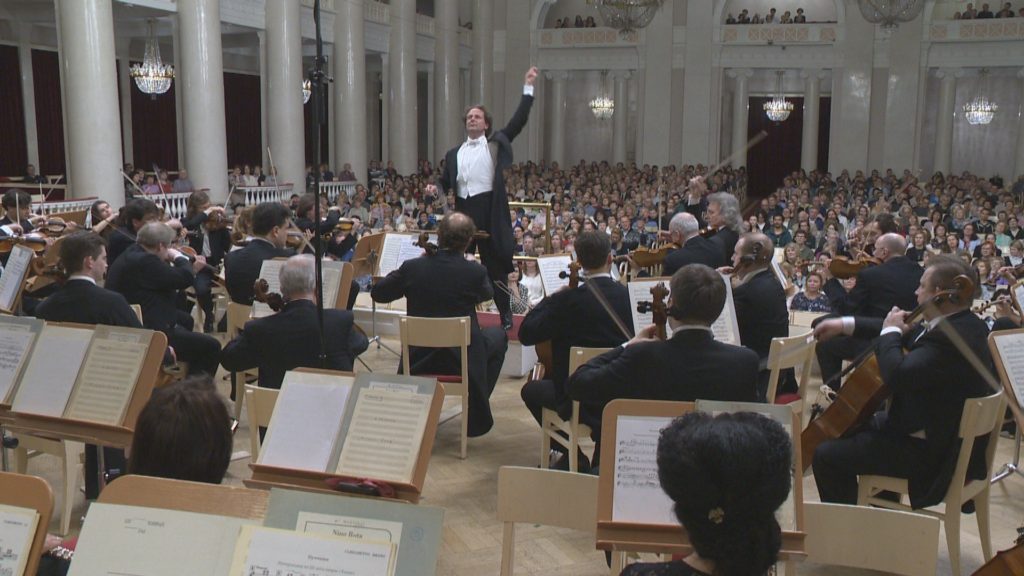
(St Petersburg Symphonic Orchestra, 2018)
Massimiliano Caldi is also a car enthusiast…
I am! It was just to say, one can’t say that a concert hall is a theatre. You shouldn’t ask a Polish taxi driver to bring you to the theatre, he’d never bring you to the concert hall. You must clearly say “Bring me to Krakow Philharmonic”…
Another difference is that my profession is recognized and admired, whereas in Italy many people continue to ask me what my real job is…
I have my own list of strange questions I have been asked throughout my career. If I’ll ever write my biography in the future, the title will be “Grand Piano Graduate” as a friend in Italy once asked me if I graduated in Grand Piano. He really did. I replied, “Yes sir, to be more precise I graduated in Steinway Grand Piano”.
Unbelievable! You couldn’t play a Yamaha…
Hence the title of my book!
Well, jokes aside, it’s kind of sad…
I only get these questions in Italy, you see? Giuseppe Verdi was born in Italy, as were Rossini, Donizetti, Puccini, the La Scala and Fenice Theatres. Bel canto, opera singing, all Italian arts! Monteverdi wasn’t from Vienna, you see? Riccardo Muti is right when he says we sold everything. Many of Monteverdi’s specialists today are to be found in the Netherlands or in Sweden. This is Italy’s problem. It’s like Fiat, who used to create wonderful cars who’ve been sold everywhere and now it’s an American company. The same happened with Ricordi, the publisher, now German. That’s all part of the problem which brings people to ask me about my real job. We’ve lost all trains. They don’t know that Toscanini was, with Karajan, one of the two founding fathers of generations of conductors…
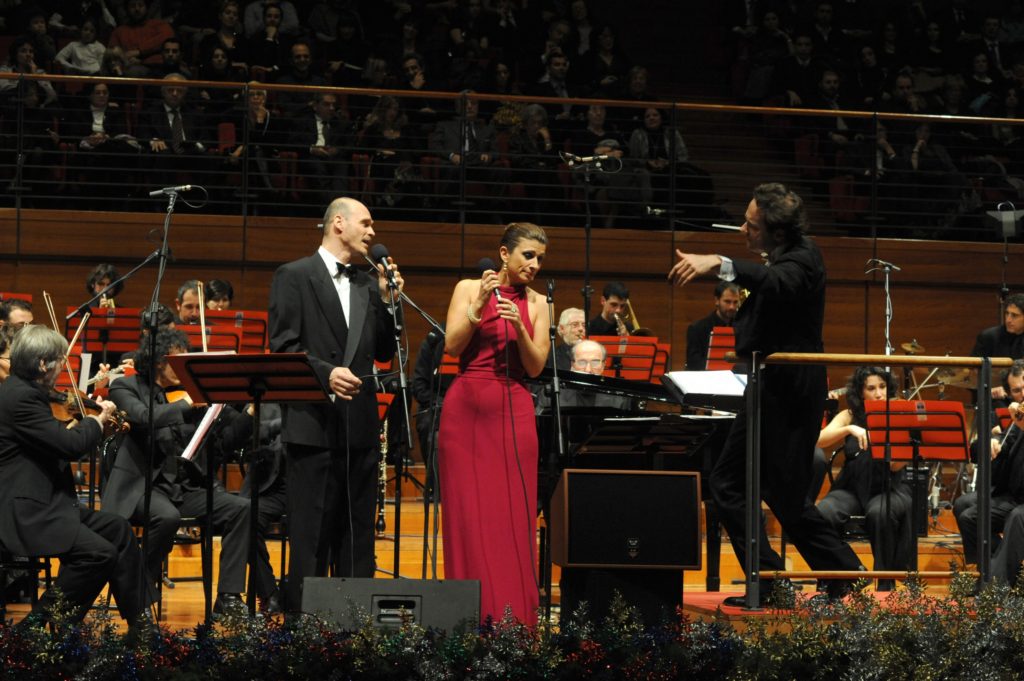
(Torino, Auditorium del Lingotto, 2008)
I also thought about this during the lockdown. Theatres have been closed immediately in Italy, despite no direct link with infections. Italy should be the land of music, but it’s probably not so anymore?
That’s right. I agree. Many nations did not close. In Portugal, for example, cinemas and theatres are still open; elsewhere, too.
Indeed. Let’s focus on this lockdowns subject now. What did you feel during the prolonged forced inactivity and what do you think about the situation in both Italy and other European countries, as you are an Italian working much abroad?
Theatres, cinemas, exhibitions, museums and restaurants are closed here in Poland, too. The same with schools, so I’d say the situation is close to Italy. Live music is only live-streamed unfortunately, no public in attendance.
And you’ve conducted a few concerts without public too, now. How does it feel and what is the conductor’s perspective on this new way of delivering music to the public?
So far I conducted two concerts and I have to say that I prefer it this way, compared to the few concerts I conducted from August to October with few listeners in attendance. They were in such small numbers, all with face-masks without the possibility to see their faces, you can’t even see if they’re smiling, so it’s really better now. A radical change is probably better than having an almost empty concert hall, with one seat occupied and three empty. Technically speaking, we play everything twice in order to have plenty of material, without cutting, so to avoid any synchronisation issues.

(Live-streamed concert, Roma Tre Orchestra, 2020)
In addition, with live-streamed concerts you know how many people are watching and listeners can send their messages…
Indeed, this is something that is much appreciated nowadays. The listener can send a message and obtain a reply from the artist at the end of the concert. Some people told me this new approach is even better than live concerts with public in attendance. It reminds them of film clubs, where a debate on the movie follows the movie itself. Of course, this can’t be true, it must be a temporary solution only, otherwise people won’t ever go to theatres and concert halls anymore. But, as a one-off from time to time, even when the pandemic ends, why not?
I also can’t imagine what classical music will look like after this pandemic. However, as you say, with too much live-streamed concerts, people will become lazy and ignore real concerts at theatres.
Indeed, as I said it must be a temporary solution only.
As a final question, what suggestions would you give to young music students across the world, especially in this difficult situation for culture?
Hard to tell. I must admit I really felt very bad during the first lockdown months. It was particularly hard after May, where some activity was restarting but not for us in particular. So, students should now focus on their studies, wait and see. At the same time, one should never stop keeping contacts alive. I never stopped sending e-mails, calling people and institutions. I did so in May and something came out of it; both the live-streamed concerts I did now and future events of 2021 came out of this May activity. So, public relations and remaining updated is important and it’s important not to isolate too much. Get out, albeit virtually! Even in this difficult situation, some new roads can open up. It was the same for me, although I could not have imagined it then.
Thanks. And is there an initiative you particularly liked in this period? Something really creative and outside the box?
I wouldn’t know. I would say this project at La Scala, as an alternative to the cancelled “Lucia di Lammermoor”, looks interesting. One has to find something absolutely new. It’s what I continue to say to my students, you must find something in which you excel. It’s not like when I started and one could conduct anything; nowadays, unfortunately, one has to specialise and have a clear positioning, an identity. You can find something interesting, with which you identify, and then try to propose it to theatres and institutions in your country or elsewhere. Internet can really help in this endeavour. It didn’t exist when I started.
Isn’t there a risk of “too much” on the internet? A risk of loosing your path in the confusion of so many possibilities?
That’s exactly why one has to find something special and unique, seldom exploited in the past by others. That would be my suggestion, but I must say I don’t have a single, paramount suggestion. As I told you, I myself still don’t really understand how I started my career!
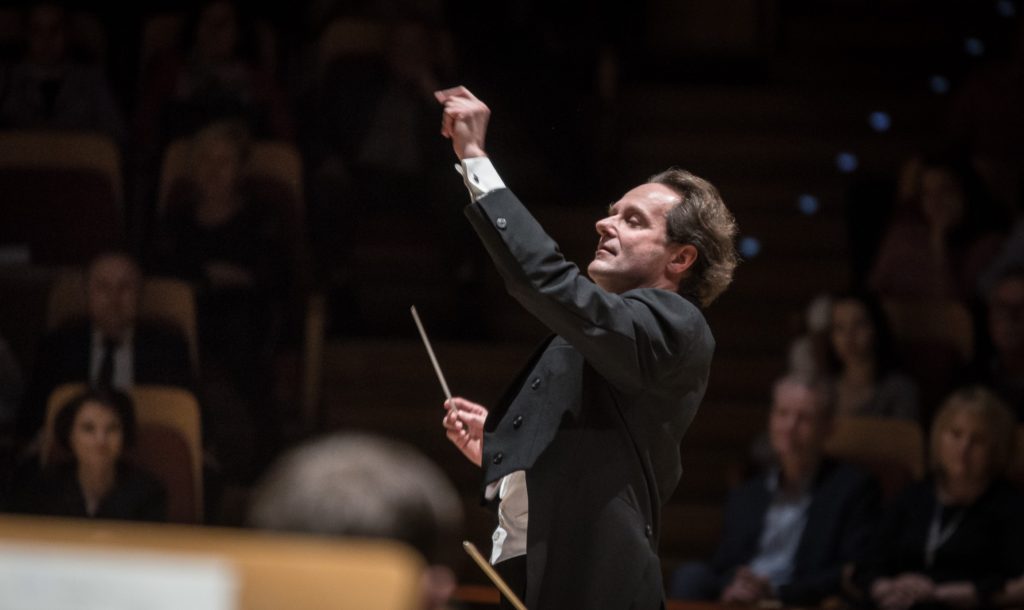
(Gdansk, February 2019 ©Paweł Jaremczuk)
Thank you very much, Maestro, it has been most interesting.
My pleasure!
Massimiliano Caldi
Official Site: http://massimilianocaldi.it
Official Facebook: https://www.facebook.com/massimilianocaldidirettore
Contact: massimilianocaldi@gmail.com
Youtube
VERDI – Coro degli zingari from ‘Il trovatore’
VERDI – Zingarelle e mattadori from ‘La traviata’